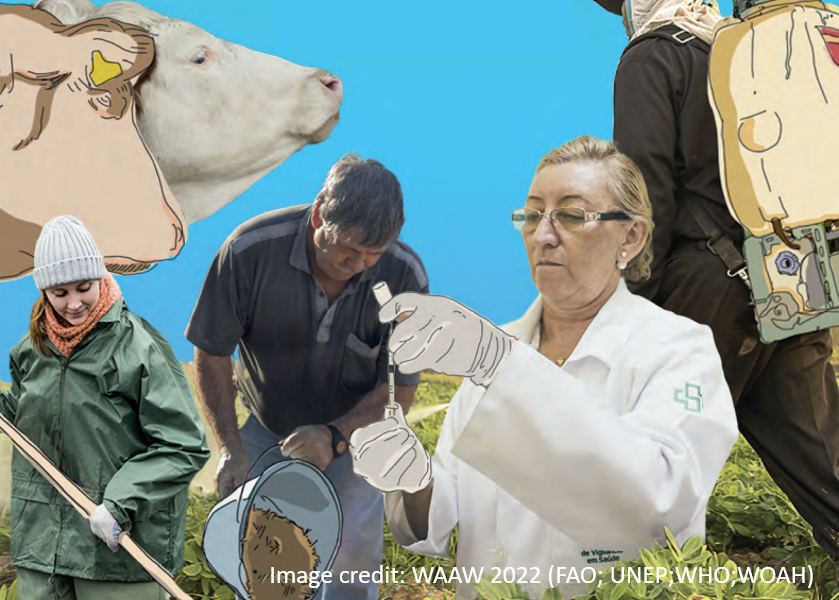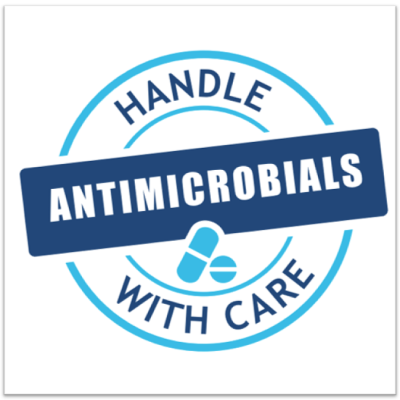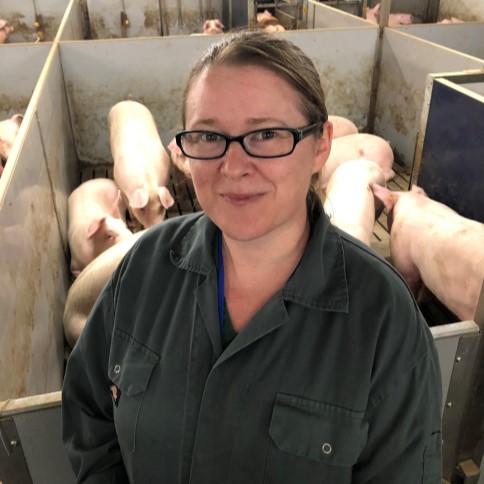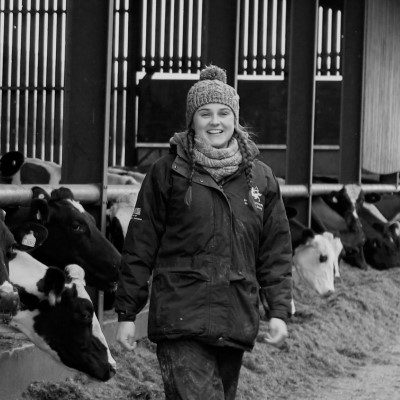CIEL | Blog: Antibiotics: Where are we headed?
Dr Grace O’Gorman

November is an apt time of year to reflect on the responsible use of antibiotics in livestock.
World Antibiotic Awareness Week is celebrated, and two key publications, the Responsible Use of Medicines in Agriculture Alliance (RUMA) Targets Task Force (TFF) report and the Veterinary Medicines Directorate (VMD) Veterinary Antimicrobial Resistance and Sales Surveillance (VARSS) reports, were both published this month. The strategic objectives in Government are to minimise the development of antibiotic resistance and protect human and animal health and welfare.
The RUMA TTF was established in response to the UK Government’s Lord O’Neil review on Antimicrobial Resistance (AMR) and the challenge it set to identify targets for antibiotic use in agriculture. These publications therefore reflect both the voluntary actions of industry, and Government ambition, to focus attention on tackling AMR.
What progress has been made?
Evidence points to very significant progress in reducing antibiotic usage, highlighted in a recent FAO report, ‘Tackling antimicrobial use and resistance in food-producing animals – lessons learned in the United Kingdom of Great Britain and Northern Ireland’. The secret ingredients for success were reported to include development of strong relationships between producers, vets and Government, industry leading the setting of targets and cross-sectoral learning/ sharing of experiences, which helped build collective ownership and responsibility.
AMR and responsible use of antibiotics is now an embedded theme in One Health with shared responsibility across all livestock sectors. In the UK, sales of antibiotics for use in food-producing animals now stands at 28.3 mg/kg, down 55% since 2014.
This is the lowest ever sales of livestock veterinary antibiotics recorded in the UK, and the UK ranks amongst the lowest users of antibiotics for livestock in Europe. The starting point and challenges faced in each livestock sectors vary but progress is being achieved with bespoke plans and targets, all underpinned by the principle ‘as little as possible, but as much as necessary’.
Where to next?
Measures that help reduce the need to use antibiotics are more important than ever. This includes reducing the general burden of disease and use of alternatives to antibiotics.
The recent CIEL Insights webinar, ‘Alternatives to Antibiotics,’ recognised the enduring challenge of AMR and focussed on the innovation pipeline to find alternatives to antibiotics for use in livestock and aquaculture. Invited speakers reported on promising areas of research and innovation, involving vaccines, bacteriophages and immunomodulators. Presentations reflect the diversity of tools needed to further reduce use of antibiotics.
Harel Pradelsky, from CIEL Industry Member Mileutis Ltd, illustrated the global market and potential for new products, highlighting the UK as a hotspot for innovation and awareness on AMR. Dr Adriano Gigante, research fellow from University of Nottingham, explained how bateriophage therapy can help where AMR is emerging, reducing the threat to effective disease control. Prof. Simon Graham, immunologist from The Pirbright Institute, showed the potential of sophisticated methods to design new custom-made vaccines. Cat McLaughlin, RUMA Chair, emphasised the importance of CIEL’s role in helping catalyse new solutions.
The ingenuity and scalability of solutions presented left the audience with a positive impression that a suite of alternatives to antibiotics in development, along with responsible use of existing antibiotics, can help secure a future where antibiotics remain effective for people and animals.
AMR remains a significant One Health challenge, but downward pressure on antibiotic use has created a place for innovation to flourish, stimulated by market and societal demand. A new era of sustainable antibiotic use, supported by a rich pipeline of alternatives, is well underway.
Such innovations provide the opportunity for further refinement in the use of antibiotics.


Grace O’Gorman, Animal Health Specialist
With outstanding experience and expertise across the animal health sector, Grace is the driving force behind CIEL’s activity in this important area, aiming to help raise the profile of how improved health and welfare can support livestock productivity and enhance the overall resilience and sustainability of the sector. In 2019 Grace completed a Nuffield Farming Scholarship focussed on animal medicines best practice, travelling throughout Europe and New Zealand looking at ways we can unlock potential for UK farmers in how medicines are used on-farm.







